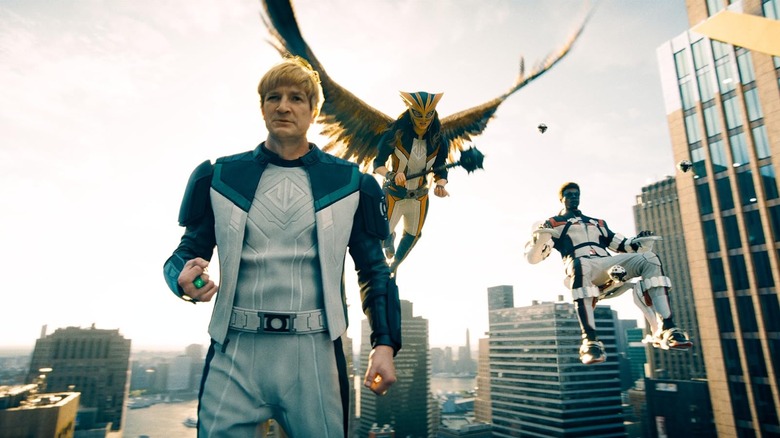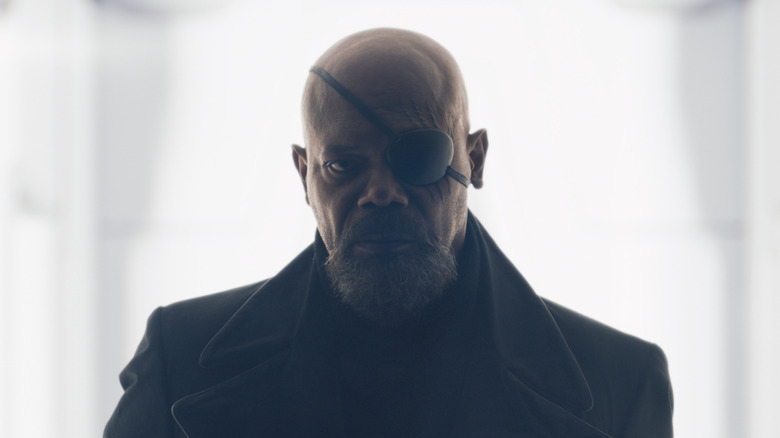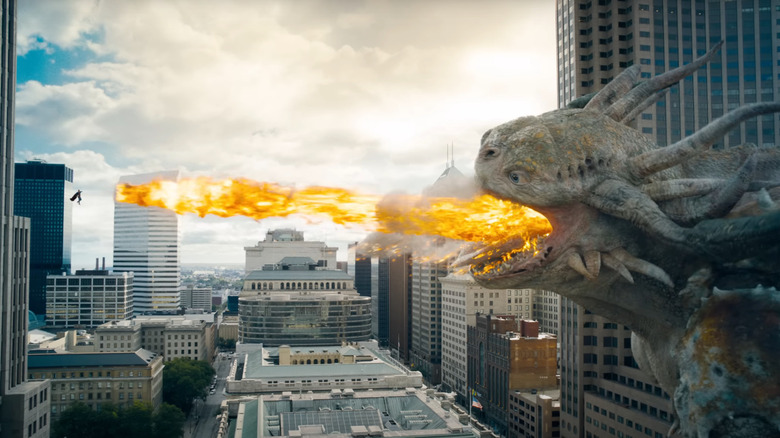The start of DC Studios heads James Gunn and Peter Safran’s DC Universe hasn’t been quite as clean as the launch of the Marvel Cinematic Universe. The rapid reboot from the previous, similarly named DC Extended Universe to this new iteration of DC’s cinematic universe has been less than perfectly clean cut, with a number of projects — from Gunn’s own “The Suicide Squad” to “Blue Beetle” — creating a muddied connection between the two continuities. All that said, there’s no question that “Superman” is the proper beginning of the franchise on the big-screen, kicking off a plan that Gunn has assured the press and public alike has been well thought-out.
To that end, “Superman” is packed (and arguably overstuffed) with details setting up future pieces of the DCU. Characters like Rick Flag (Frank Grillo) and Maxwell Lord (Sean Gunn) have brief cameos, but they’re sure to persist in upcoming projects. At the same time, the biggest advantage “Superman” gives the DCU can be seen the second the movie starts. It’s a detail in the film’s opening expository text, which explains the state of the world.
As revealed there, “metahumans” — as superpowered individuals in Gunn’s franchise are called — have existed openly on Earth for centuries. That in itself is perhaps the single biggest difference between the DCU canon and the MCU. When “Iron Man” kicked off the latter in 2008, the world depicted was essentially our own — one that, over the course of the ensuing “phases” of films and Disney+ shows, grew increasingly chaotic because of the introduction of superheroes and villains. “Superman,” on the other hand, shows us a world where everyone is already accustomed to such things, and this could be a huge boon to the property at large going forward.
The MCU has tied itself in knots with the logistics of comic book storylines
For a while, part of the charm of the MCU was seeing the world respond to more and more comic book-y developments. First, there were just a few superheroes, then the Avengers came together, aliens started attacking Earth, it turned out wizards existed, and finally half of all living beings vanished before, whoops, they returned. The franchise got a lot of mileage out of turning “our world” into a wild, chaotic place. But after a while, that approach started to run out of steam.
You can see this especially clearly in all of the U.S. government-related MCU storylines since the release of “Avengers: Endgame.” Shows like “Secret Invasion” and “The Falcon and the Winter Soldier” are primarily about “real” institutions dealing with sci-fi phenomena on a global scale. But, unfortunately, those plot threads just aren’t that interesting anymore. Spies are cool and aliens are cool, but it turns out combining them merely robs them of what makes them fun on their own. In other words, characters in the MCU still react to bizarre things the way we would if they were to happen in real-life. And while that’s believable, it also gets stale quick. There just isn’t a lot of room for variety there.
At this point, your average comic book movie viewer is more accustomed to the zany storylines of the MCU than the characters of the MCU are, which creates a weird tension between the material and the audience. But by establishing a very different kind of world right from the jump, the DCU should be able to avoid that problem.
The DCU is a breath of fresh air
It’s really fun that people — be they a food cart guy, a reporter, or a city official – in “Superman” have already accepted that they live in a ridiculous world by the time the film begins. That comfort wraps things back around to being the opposite of ridiculous. Instead, it becomes the most normal thing ever to have brightly-clad people flying around fighting glowing monsters in the middle of the night over the harbor. How else would the world be?
So much time in the MCU has been wasted trying to distance the franchise from the silliness of its comic book-based storylines by putting a kind of “grounded” spin to them. Ultimately, though, that distance just pushes audiences further away. Genre stories aren’t engaging because they’re so much like our real lives, they’re engaging because you can tell relatable emotional stories in the context of outlandish, grand fantasies. I care much less about how the world reacts to Superman than I care about how Superman responds to any given problem or emotional stumbling block. That’s where stories happen.
This distinction from the MCU is also a big way in which Gunn is distancing his franchise from the DCEU. Zack Snyder’s previous attempt at a connected cinematic universe for DC played the same game as Marvel, leaning heavily on superheroes hiding in the shadows … as if you could possibly turn the bright red suit-wearing guy who runs faster than time into Batman. What a breath of fresh air to watch a movie that doesn’t act shocked by its own subject matter.
“Superman” is now playing in theaters.


